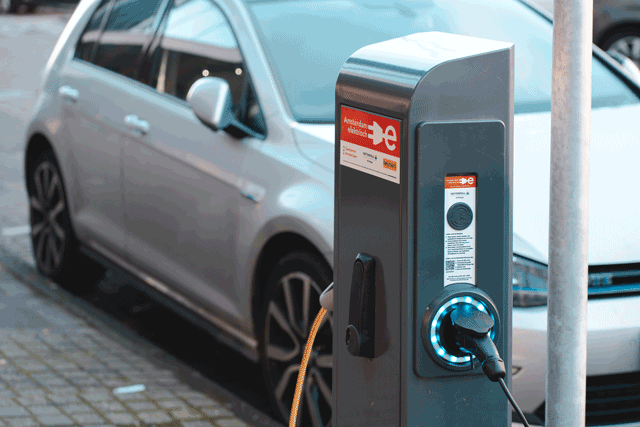Electric vehicles are slowly becoming a mainstay on Jordan’s streets as many are switching to affordable sustainable transport means.
As per the figures from the Jordan Free Zone Investor Commission (JFZIC), the year 2022 witnessed the clearance of roughly 16,000 electric vehicles, which represents around 180 per cent increase when compared with 2021.
Jihad Abu Nasser, representative of the automobile sector at the JFZIC, told ESG Mena that demand for EVs in Jordan is “increasing heavily” every year and the main factor is its affordability when compared with fuel-powered cars.
“More traders are importing EVs and customers are now considering buying EVs more than any time before,” he added.
According to the commission, the clearance of diesel and gasoline vehicles witnessed a decrease of 10 and 20 percent, respectively. As for hybrid cars, the clearance rate dropped roughly by 40 percent.
The number of electric vehicles in use in Jordan currently stands at around 60,000, according to sector representatives.
Lack of charging stations
The main challenge facing the spread of electric vehicles in Jordan, according to experts, is the limitedness of the power charging stations for the EVs.
Jordan’s Energy and Minerals Regulatory Commission said that there are 54 power charging stations currently in Jordan and licences have been issued to build 92 more across Jordan, according to a statement by the commission to ESG Mena.
Hashem Aqel, an energy expert, stressed the need for more EV charging stations.
“Currently, if a driver wants to charge his/her car in a power charging station they will only be able to charge it for 20-30 minutes amid the long queues as workers at these stations allot time for others to charge their vehicles,” Aqel said.
“We need more charging stations and advanced equipment for fast charging as this will encourage more adoption of the EVs amid high fuel prices in Jordan,” he added.
More tax exemptions would also increase the adoption of EVs in Jordan, where electricity generation capacity exceeds the country’s needs, Aqel noted.
Green energy transition
Omar Shoshan, president of Jordan Environment Union, held the view that increased adoption of EVs will help with the green energy transition efforts.
“There is a need for increased focus on EVs not just at the level of personal or private sector ownerships but at the level of public transport,” Shoshan said.
Green mobility in Jordan can be enhanced by adding electric trucks and electric buses to the public transport fleet, he noted.
“Jordan is a victim of climate change and is not an emitter; however the Kingdom is still a pioneer in the adoption of EVs in the MENA region,” Shoshan said.
He also highlighted the importance of enhancing capabilities for the safe disposal of electric batteries to preserve the environment.
The Kingdom’s total greenhouse gas emissions, standing at approximately 28 million tonnes of CO2, are inconsequential, as this figure represents around 0.06 per cent of the world’s total CO2 emissions, according to Jordan’s Third National Communication on Climate to the United Nations Framework Convention on Climate Change (UNFCCC).
Jordan’s emissions are expected to grow to 38,151Gg, 51028Gg and 61,565Gg of CO2-eq in the years 2020, 2030 and 2040, respectively. The role of the energy sector and subsectors as leading GHG emitters is expected to progress in the future, with the sector forming 72.9 per cent of total emissions in the year 2006, to an anticipated 83 per cent in the year 2040, according to the third communication report.
With regard to energy subsectors, electricity generation and transport are the primary emitters. Their share of the energy sector’s total emissions falls between 39 and 43 per cent, followed by a share of around 7 per cent for the residential subsectors and 6 per cent for the industrial subsector. The commercial, agriculture and refinery processes as well as the transportation of fuel are marginal contributors to total energy sector emissions.




